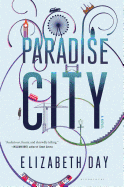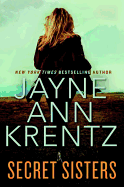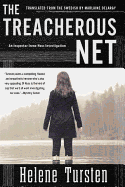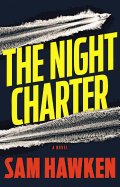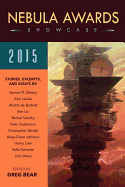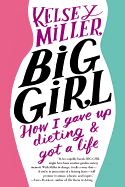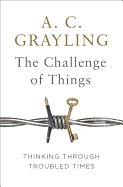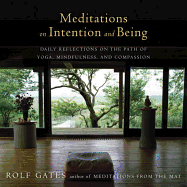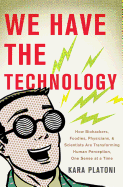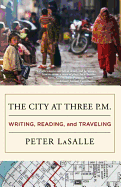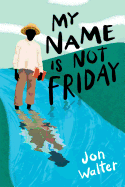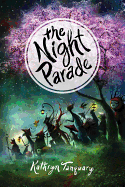.jpeg) |
| photo: Harry Tanielyan |
Kelsey Miller worked in film production before becoming a staff writer for Refinery29. Her Anti-Diet Project is one of the website's most popular franchises and won Refinery29 the Publisher of the Year award from Digiday.com. Miller was named one of Huff Post's Body Image Heroes of 2013. Big Girl (see our review below), Miller's first book, focuses on how changing her relationship with food changed her life. Miller lives in Brooklyn, N.Y.
Initially Big Girl appears to focus on food issues and escaping the dieting fantasy: "The real-life version of a fairy godmother, every diet on earth promises one thing: You will be different." By the end of your memoir, you address universal issues of mindfulness. Did you realize your journey would lead to mindfulness before you began writing, or did the process of creating this memoir facilitate this realization?
In a word: Nope! It seems naïve now, but in the beginning of this journey, I honestly thought that changing my relationship to food and my body would be just that. Of course, I soon realized that things like eating and body image were interlocked with much bigger issues in my life and my history. That's why this book is a memoir; it's not just "how I gave up dieting" but also "got a life," as the subtitle reads. Mindfulness was one of the biggest shifts in the way I ate and therefore how I lived as well. The more I got used to eating with mindfulness, the more that practice crept into everything else in my life. It was incredible--but also a huge pain in the a**.
In addition to mindfulness, one of the core principles of Intuitive Eating involves trusting yourself--which can be a challenge. How were you able to trust the process before you fully trusted yourself?
Having an eating coach at the beginning was crucial. I wish I was one of those people with a deep, abiding faith in myself, but (at least when it comes to food) I don't have a great track record. I don't know if I could have (or should have) jumped off this particular cliff without some professional guidance. But my eating coach, Theresa Kinsella, helped me learn self-assurance as much as anything else. It just takes practice. I still hear that self-doubting voice in my head shrieking, "But you're an idiot!" Maybe I'll always hear her. Doesn't mean I don't have to listen. She's not the boss of me.
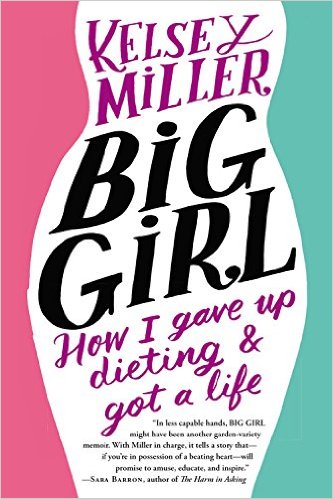 Your use of imagery and metaphor provides vivid and authentic character descriptions in just a few words: Theresa, your therapist "was nice and optimistic and no-nonsense; a tart slice of Midwestern cherry pie." Or "Olivia was a friendly, whip-thin woman, so small and bouncy that even her voice sounded low fat." Do you plan to write fiction in the future?
Your use of imagery and metaphor provides vivid and authentic character descriptions in just a few words: Theresa, your therapist "was nice and optimistic and no-nonsense; a tart slice of Midwestern cherry pie." Or "Olivia was a friendly, whip-thin woman, so small and bouncy that even her voice sounded low fat." Do you plan to write fiction in the future?
Well, thank you! It's funny, I enjoy metaphors and similes (obviously), but I find myself getting tangled up in them sometimes. I have to intervene on myself and say, "Oh my God, just say what she looked like and move on."
I would like to try fiction, definitely. Honestly, I'm a little hesitant since first person writing is so comfortable and, certainly, I know I will always do it. Fiction seems like a mysterious, fairytale forest, and right now I'm standing at the edge of it, excited but scared to step in. (Jesus, I did it again.)
You wrote, "One of my greatest lifelong goals has been to ensure that absolutely everyone likes me and no one is mad at me, ever. Unfortunately, my other goal was to be a writer." The challenge of telling the truth as a memoirist must be especially difficult for a people-pleaser. How have you reconciled this? Did you share drafts of Big Girl as you were writing?
I did not share drafts. I barely made a peep about the content to friends and family, so afraid that someone would say, "Yeesh, really? You're writing about that?" I think there are major pros and cons to keeping the work to yourself, but for me it was necessary, at least in the first pass.
I'm still scared of upsetting people or being criticized, but it does get easier. I really did hold my own feet to the fire about certain sections, making absolutely sure I was putting them in the book for the right reasons and making sure I weighed the consequences. One of my senior managers at work reminded me that I told the truth, "and the truth is always right." I try to remember that.
One of my favorite quotes from Big Girl is, "It's easy to say that people are good or bad, because villains and heroes make for great stories. But that's rarely true. Villains are almost always phantoms of our own making, and real heroism happens when you stop repeating that same old story and start telling the truth." What has been the greatest benefit of telling the truth? Do you have any recommendations for others who hope to "tell the truth" in their own lives (whether in writing or not)?
First, I would say that 90% of the time, your fears about speaking up will not be realized. Sharing your truth, no matter how icky, is almost always met with understanding, if not from everyone then from many. And there is no greater relief than that feeling of being understood.
But there are also consequences to telling the truth, and sometimes people will react unkindly or with anger. No matter what, when you've let the truth out, there's no going back. You can't un-tell it. You live in a slightly altered landscape, but even if it's not as easy or familiar, it's better because it's a more honest reality. And yeah, maybe 10% of the time, your worst fears do come true. Even then there's a silver lining; you learn pretty fast that you can survive even your worst fears realized. Really, you can survive so much more than you thought you could. --Kristen Galles from Book Club Classic
Kelsey Miller: Food and Mindfulness
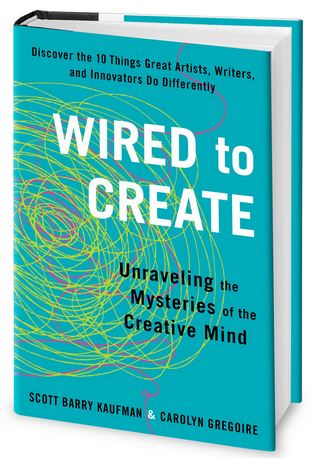



.jpeg)
 Your use of imagery and metaphor provides vivid and authentic character descriptions in just a few words: Theresa, your therapist "was nice and optimistic and no-nonsense; a tart slice of Midwestern cherry pie." Or "Olivia was a friendly, whip-thin woman, so small and bouncy that even her voice sounded low fat." Do you plan to write fiction in the future?
Your use of imagery and metaphor provides vivid and authentic character descriptions in just a few words: Theresa, your therapist "was nice and optimistic and no-nonsense; a tart slice of Midwestern cherry pie." Or "Olivia was a friendly, whip-thin woman, so small and bouncy that even her voice sounded low fat." Do you plan to write fiction in the future? 